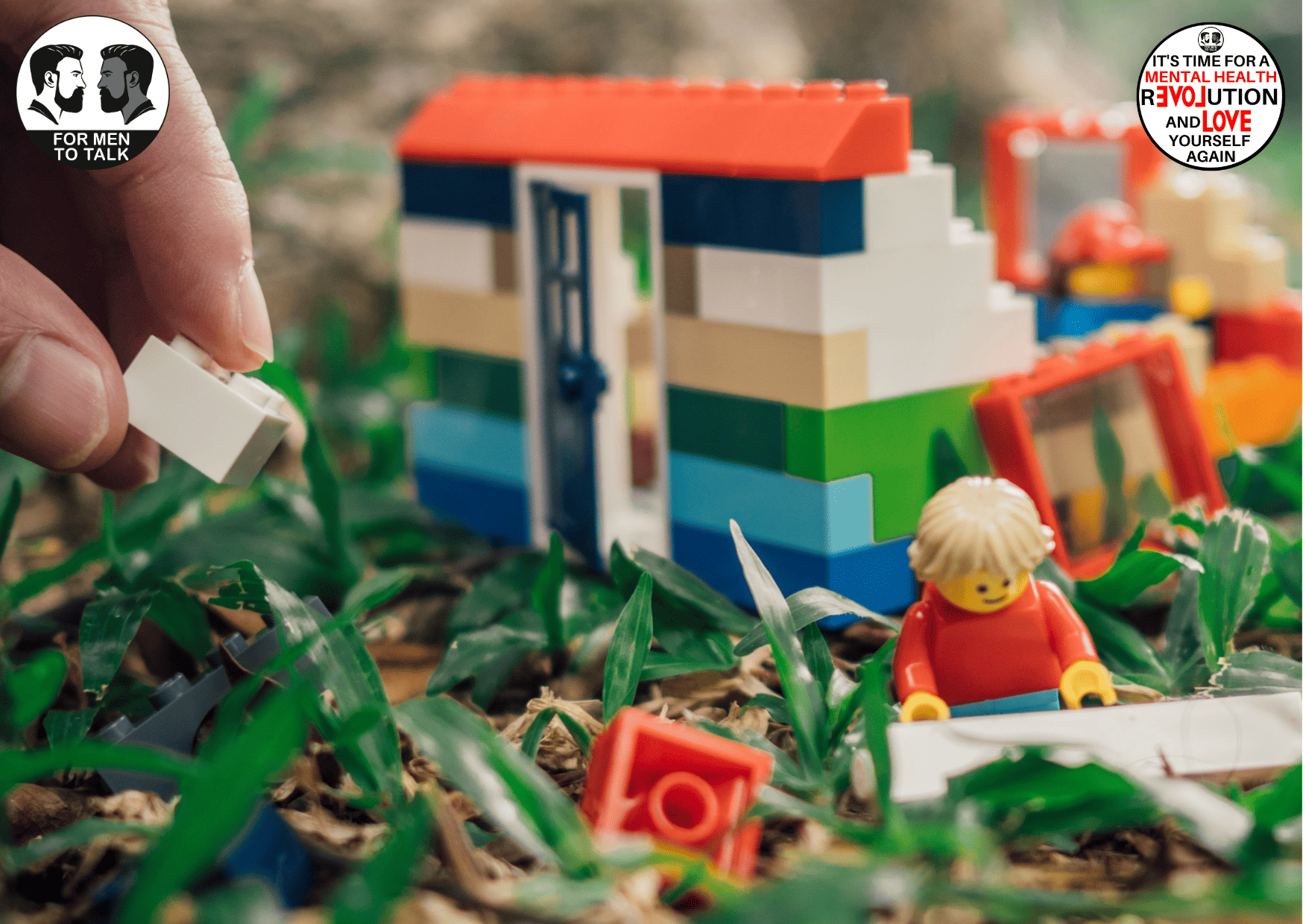The benefit of Lego on mental health

By Luke Newman, Founder of ‘For Men To Talk’
I’m 44 years old and I still love Lego. For me, it’s not just a toy from my childhood. It has become something much bigger. During the Covid pandemic, when the world slowed down and so much of life felt uncertain, Lego gave me focus and calm. One of the sets I built was the Disney castle with my younger children. We had visited Disney World in Orlando a couple of years earlier, so every piece brought back memories of that trip. It wasn’t just a model—it was a reminder of happy times, and building it together gave us something positive to hold on to when the world outside felt heavy.
Lego has the power to connect the past with the present. I love building sets that remind me of my youth. The Home Alone house takes me back to one of my favourite Christmas films. The Star Wars sets connect me to the excitement I felt watching the films as a boy. Even the Lego football stadiums bring a smile because football has always been part of my life. These sets aren’t just about bricks; they’re about memory, nostalgia, and joy. They allow me to reconnect with moments that shaped me, while giving me space to create something new.
But Lego is more than just fun. It has huge benefits for our mental health. The simple act of clicking bricks together is mindful. It slows you down. The repetitive building reduces stress and anxiety because your mind focuses on one small task at a time. You can’t build a model all at once—you do it step by step. That’s a powerful reminder that life is the same.
For men especially, Lego can open the door to talking. Sitting down with friends or family, sharing a table, and working on a set gives space for conversation. Sometimes men find it difficult to open up about feelings, but when you’re building together, the words come easier. You don’t have to look each other in the eye the whole time. You can talk while your hands are busy, and that can make a huge difference.
I also still enjoy building random things, without instructions. Aeroplanes, lorries, anything my imagination comes up with. This kind of building lets me express myself. It’s like painting or writing, but with bricks. It gives me freedom to create whatever I want. That freedom is important for emotional health. It’s a safe outlet for feelings that can be hard to put into words.
There are also physical and mental skills that Lego strengthens. Problem-solving, focus, and patience all improve when you’re working on a tricky set. Spatial skills and coordination get a workout too. And for adults, it offers something very special: a distraction from screens, emails, and constant notifications. Lego brings you back into the moment.
For me, Lego has been a lifelong companion. It connects me to my children, to my younger self, and to friends I build with today. It keeps my mind calm, my imagination alive, and reminds me that talking while building is just as important as the final model.